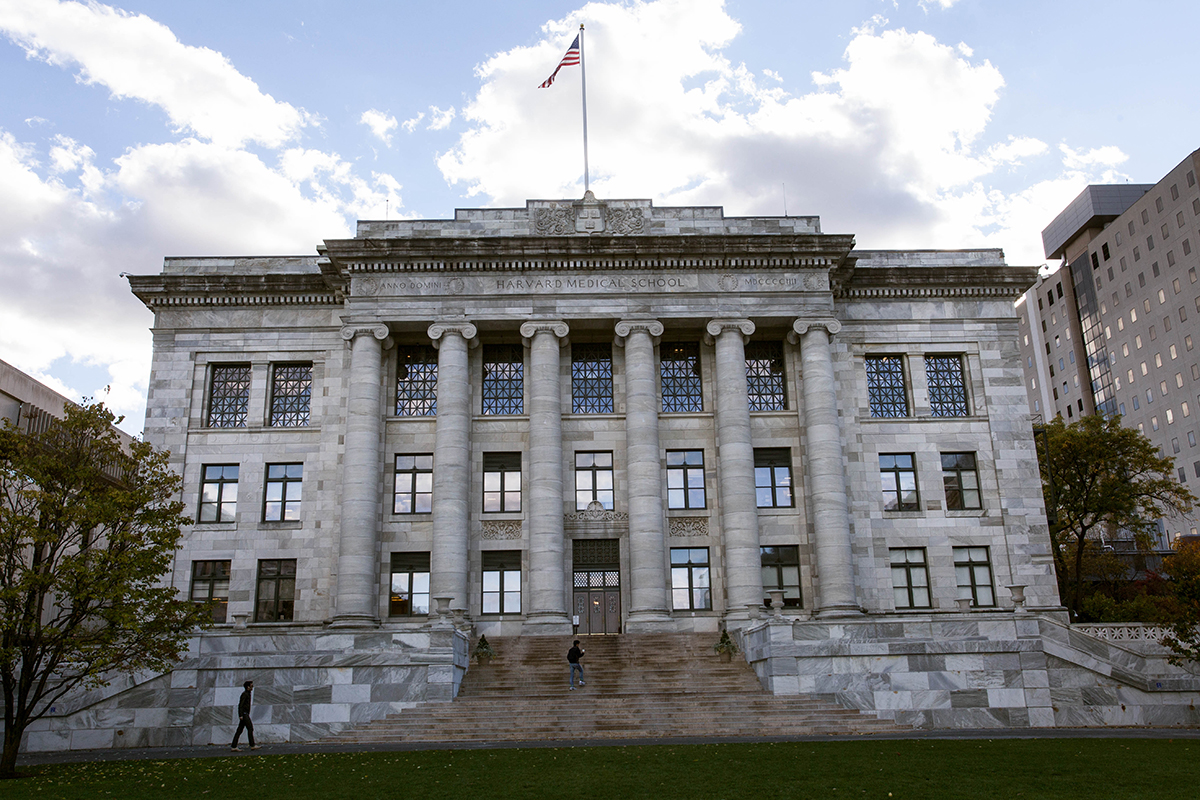Harvard Held a Closed Meeting on Genome Synthesis, and Experts Are Not Happy

Harvard Medical School photo by Alex Lau
Last week, Harvard Medical School reportedly held a closed meeting to discuss genome synthesis, and that’s not sitting well with some members of the scientific community.
According to reports, about 150 people gathered at Harvard to discuss the possibility of chemically constructing a human genome—essentially creating, in a laboratory, the genetic materials that make up a human being—within the next 10 years. In the more immediate future, the synthesized genome could be used for research. Successful completion of the project, however, could open the door to building a person from scratch.
Unsurprisingly, that idea has been met with a great deal of conversation in the medial community. But the meeting itself—and the fact that it was held in secret, closed to members of the press—has also been a topic of debate.
Drew Endy, a well-known bioengineering professor at Stanford, has been leading the criticism. On May 9, he tweeted part of the meeting invitation—the part that specifically forbid inviting any journalists, or tweeting about the day’s proceedings.
If you need secrecy to discuss your proposed research (synthesizing a human genome) you are doing something wrong. pic.twitter.com/SN1X8zlPH8
— Drew Endy (@DrewEndy) May 9, 2016
Then, Endy and Laurie Zoloth, a bioethics expert at Northwestern University, co-authored an essay that appeared in Cosmos magazine.
“Given that human genome synthesis is a technology that can completely redefine the core of what now joins all of humanity together as a species, we argue that discussions of making such capacities real, like today’s Harvard conference, should not take place without open and advance consideration of whether it is morally right to proceed,” they wrote, adding that theologians, ethicists, and philosophers should be consulted.
“The creation of new human life is one of the last human-associated processes that has not yet been industrialised or fully commodified. It remains an act of faith, joy, and hope,” they continue. “Discussions to synthesise, for the first time, a human genome should not occur in closed rooms.”
Experts from the Center for Genetics and Society have also weighed in on the meeting.
Representatives from Harvard did not immediately respond to a request for comment for this story, but organizer George Church, a genetics professor at Harvard Medical School, told the New York Times that the project has been misrepresented by critics.
Church said the goal is to create cells, not whole people, and that the project would also improve the synthesis of DNA in animals, plants, and microbes. He also noted that the meeting was kept closed to protect information prior to its publication in a scientific journal, though he told the Washington Post that, “Probably with 20-20 hindsight we shouldn’t have tried to couple it with a peer-reviewed paper.”


